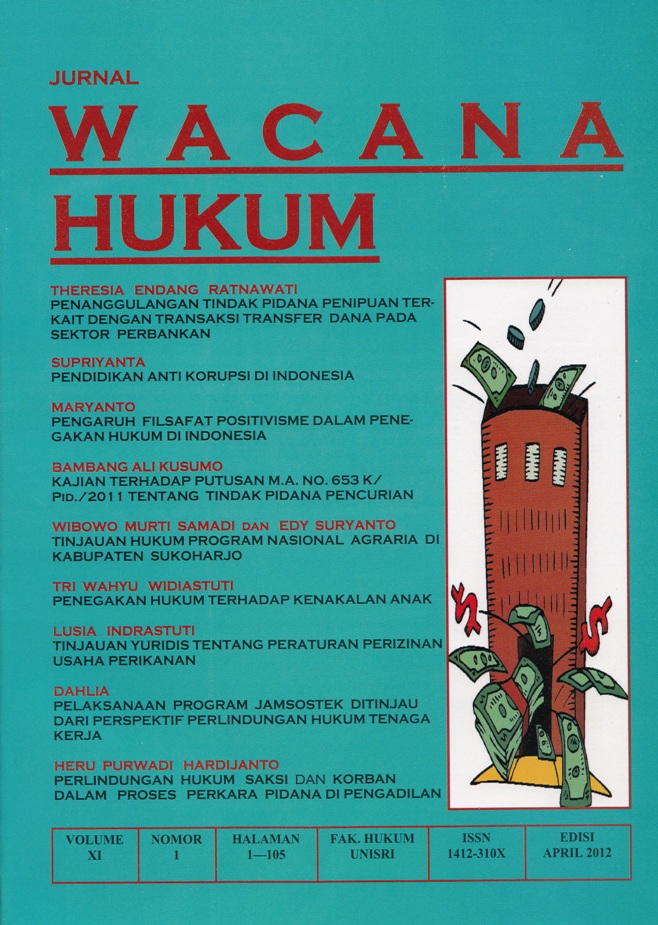PERLINDUNGAN HUKUM SAKSI DAN KORBAN DALAM PROSES PERKARA PIDANA DI PENGADILAN
DOI:
https://doi.org/10.33061/wh.v11i1.733Abstract
Abstract:Law formulation of protection eyewitness is law phenomenon crime system in theIndonesia as crime system of judicature, where as law straightening of always
correlation by law enforcer. Law straightening in eyewitness protection has been found
that often witnesses do not get protection law and even become accused. As that way in
formulation wisdom punish about eyewitness protection and it needed in future with
law balance such as KUHP, it form in unity law system, so easy to do law. Law of
protection of eyewitness and victim and is new masterpiece of nation in the Indonesia
which inspiring a law aspiration protecting the whole Indonesian nation especially
eyewitness rights and victim in course of criminal justice. So that thereby punish
protection of victim and eyewitness represent guidance in conducting criminal law
formulation in one standard law system that is in a formulation punish Indonesia crime
system of judicature.
Key words: protection punish victim and eyewitness, process criminal justice.
Downloads
Published
2013-11-29
How to Cite
Hardijanto, H. P. (2013). PERLINDUNGAN HUKUM SAKSI DAN KORBAN DALAM PROSES PERKARA PIDANA DI PENGADILAN. Wacana Hukum, 11(1). https://doi.org/10.33061/wh.v11i1.733
Issue
Section
Journal's Articles
License
Copyright (c) 2013 Heru Purwadi Hardijanto

This work is licensed under a Creative Commons Attribution-ShareAlike 4.0 International License.
Authors who publish with this journal agree to the following terms:
- Copyright on any article is retained by the author(s).
- The author grants the journal, the right of first publication with the work simultaneously licensed under a Creative Commons Attribution License that allows others to share the work with an acknowledgment of the work’s authorship and initial publication in this journal.
- Authors are able to enter into separate, additional contractual arrangements for the non-exclusive distribution of the journal’s published version of the work (e.g., post it to an institutional repository or publish it in a book), with an acknowledgment of its initial publication in this journal.
- Authors are permitted and encouraged to post their work online (e.g., in institutional repositories or on their website) prior to and during the submission process, as it can lead to productive exchanges, as well as earlier and greater citation of published work.
- The article and any associated published material is distributed under the Creative Commons Attribution-ShareAlike 4.0 International License

















.png)


